A Gentle Giant Through the Ages: Exploring the World of the Mastiff
The Mastiff, a breed synonymous with both immense size and remarkable gentleness, holds a distinguished place in canine history. Originating from ancient Molosser dogs from Greece and introduced to England through Roman influence, the Mastiff’s lineage includes guardians, war dogs, and companions to nobility. Understanding this history is key to appreciating the breed’s temperament and needs today.
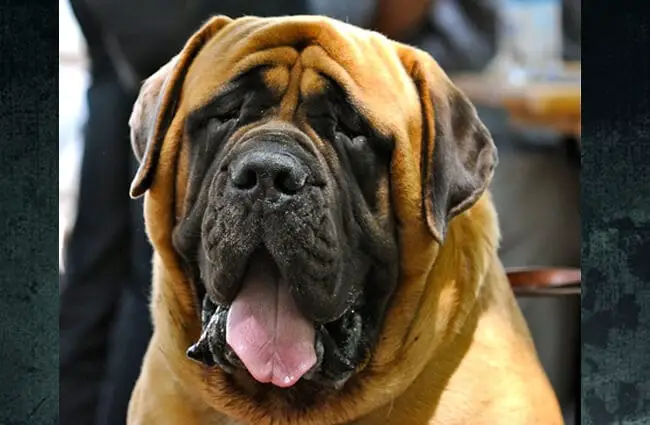
Physical Characteristics: A Breed of Grand Proportions
The Mastiff is, quite simply, large. Males typically stand at least 30 inches tall at the shoulder and weigh between 160 and 230 pounds. Females are slightly smaller, averaging 27.5 inches tall and weighing between 120 and 170 pounds. Their broad head, wrinkled brow, and short, dense coat contribute to their imposing appearance. Acceptable coat colors include fawn, apricot, and brindle, and they always feature a black mask. A distinctive feature is the ‘mask,’ the dark shading around the muzzle and face. While seemingly intimidating, their expressive eyes often reveal a surprisingly sweet disposition.
The Ideal Environment for a Mastiff
Due to their size, Mastiffs are not suited to apartment living. They need ample space to move around comfortably, both indoors and outdoors. A securely fenced yard is essential, not just to prevent escapes, but also to protect other animals from their sheer size and potential playful exuberance. While they aren’t typically high‑energy dogs, they do require regular, moderate exercise to maintain muscle tone and prevent obesity. Short walks, playtime in the yard, and mental stimulation are sufficient. Furthermore, because of their thick coats, Mastiffs are sensitive to heat and require access to shade and plenty of fresh water, particularly during warmer months.
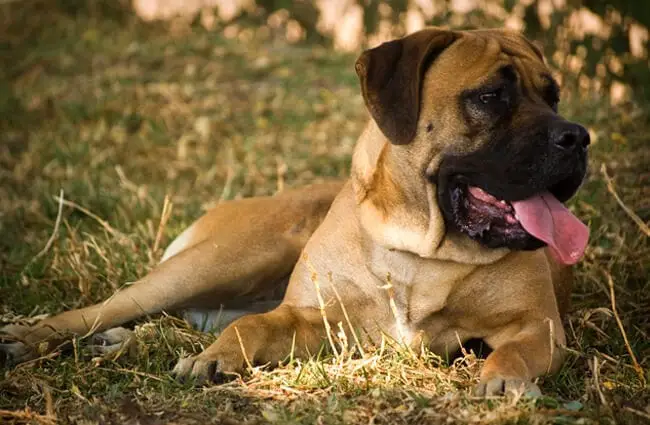
Temperament and Behavior: Gentle Giants with a Protective Instinct
Despite their imposing size, Mastiffs are renowned for their gentle and affectionate nature, earning them the nickname ‘gentle giants.’ They are typically calm, dignified, and good‑natured, making them wonderful family companions. However, their history as guardians means they possess a natural protective instinct. Early socialization is crucial to ensure they are comfortable and well‑behaved around strangers and other animals. This means exposing them to a variety of sights, sounds, people, and experiences during puppyhood. A well‑socialized Mastiff will be confident and friendly, while a poorly socialized one may exhibit fearfulness or aggression. They tend to be reserved with strangers, but loyal and loving with their families. Their tendency to be somewhat lazy indoors belies a surprising athleticism when motivated.
Caring for Your Mastiff: A Commitment to Well‑being
Owning a Mastiff is a significant commitment. Beyond the space requirements, there are several important aspects of their care to consider.
- Feeding: Due to their size, Mastiffs require a substantial amount of high‑quality food. A puppy’s diet is particularly important to ensure healthy growth and prevent skeletal problems. Adult Mastiffs benefit from a diet formulated for large breeds, designed to maintain a healthy weight and support joint health.
- Grooming: Their short coat requires minimal grooming, but regular brushing will help to remove loose hair and keep their coat healthy.
- Health: Mastiffs are prone to certain health problems, including hip and elbow dysplasia, bloat (gastric dilatation‑volvulus), cardiomyopathy, and cancer. Regular veterinary checkups are essential for early detection and treatment.
- Training: Early obedience training is crucial. Mastiffs are intelligent but can be somewhat stubborn, so positive reinforcement methods are most effective.

Beyond the Basics: Understanding the Nuances of Mastiff Ownership
For those considering bringing a Mastiff into their lives, a deeper understanding of the breed’s quirks and needs can be invaluable.
- Drooling: Mastiffs are known for their prodigious drooling, particularly after drinking or eating. This is simply a physiological trait and can be managed with regular wiping.
- Skeletal Development: Due to their rapid growth rate as puppies, Mastiffs are susceptible to skeletal problems. It is crucial to avoid excessive exercise or jumping during their first year of life.
- Sensitivity: Despite their imposing stature, Mastiffs can be surprisingly sensitive and respond best to gentle handling and positive reinforcement.
- Socialization – A Lifelong Process: While early socialization is paramount, continued exposure to new experiences throughout their lives helps to maintain a well‑adjusted temperament.
A Look at Mastiff Varieties
While the English Mastiff is the most well‑known, other Mastiff breeds exist, each with its unique characteristics. These include the Neapolitan Mastiff, known for its abundant wrinkles; the Bullmastiff, a more compact and athletic breed developed for guarding estates; and the Tibetan Mastiff, a powerful and independent breed originating from the Himalayas. Each variety shares the basic Mastiff traits of size, strength, and a protective nature, but differs in appearance, temperament, and specific needs.
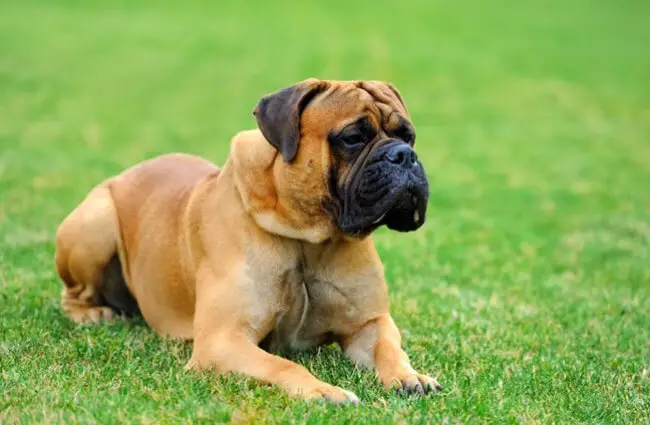
The Mastiff as a Family Companion: Is This Breed Right for You?
The Mastiff can be a wonderful family companion for the right household. They are known to be patient and gentle with children, often acting as watchful guardians. However, due to their size, supervision is always necessary, especially with small children. A family that can provide ample space, regular exercise, consistent training, and a loving environment will find a loyal and devoted companion in a Mastiff. It’s a commitment that requires careful consideration, but the rewards can be immeasurable. Their quiet dignity, unwavering loyalty, and gentle nature make them truly exceptional dogs.

In conclusion, the Mastiff is a breed steeped in history and characterized by a unique combination of size, strength, and gentleness. Understanding their needs and providing the proper care will ensure a happy and fulfilling life for both the dog and its owner. This truly remarkable breed continues to capture the hearts of dog lovers worldwide.

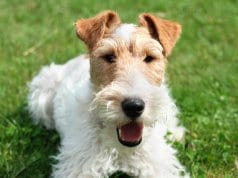
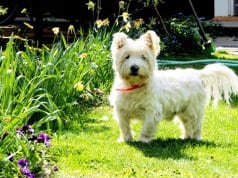


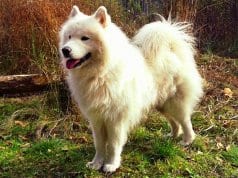
![Red Angus Closeup of a beautiful Red Angus cowPhoto by: U.S. Department of Agriculture [pubic domain]https://creativecommons.org/licenses/by/2.0/](https://animals.net/wp-content/uploads/2020/03/Red-Angus-4-100x75.jpg)

